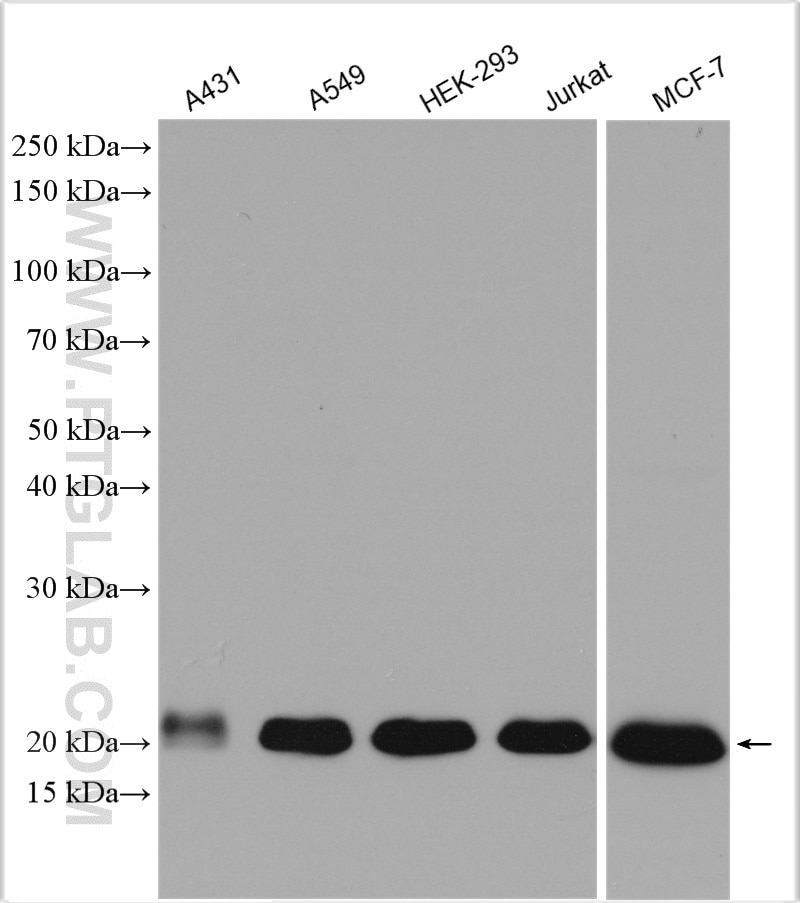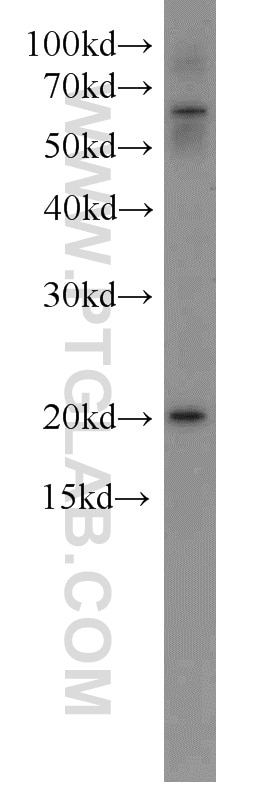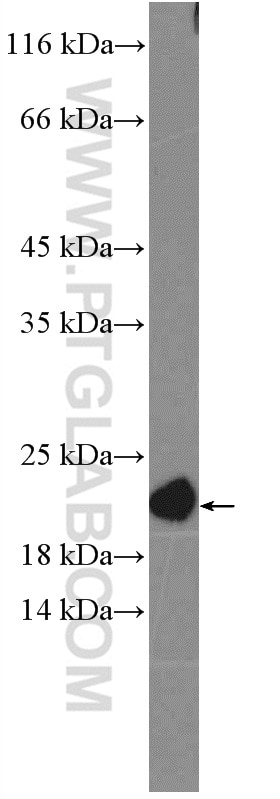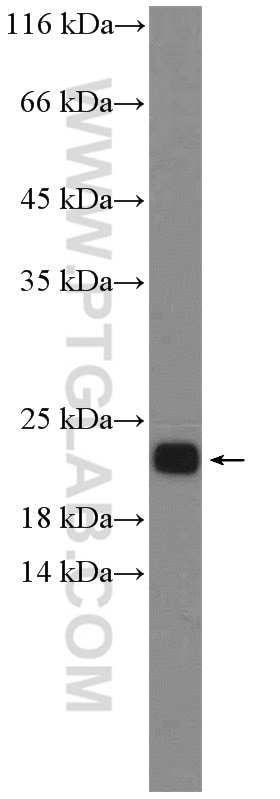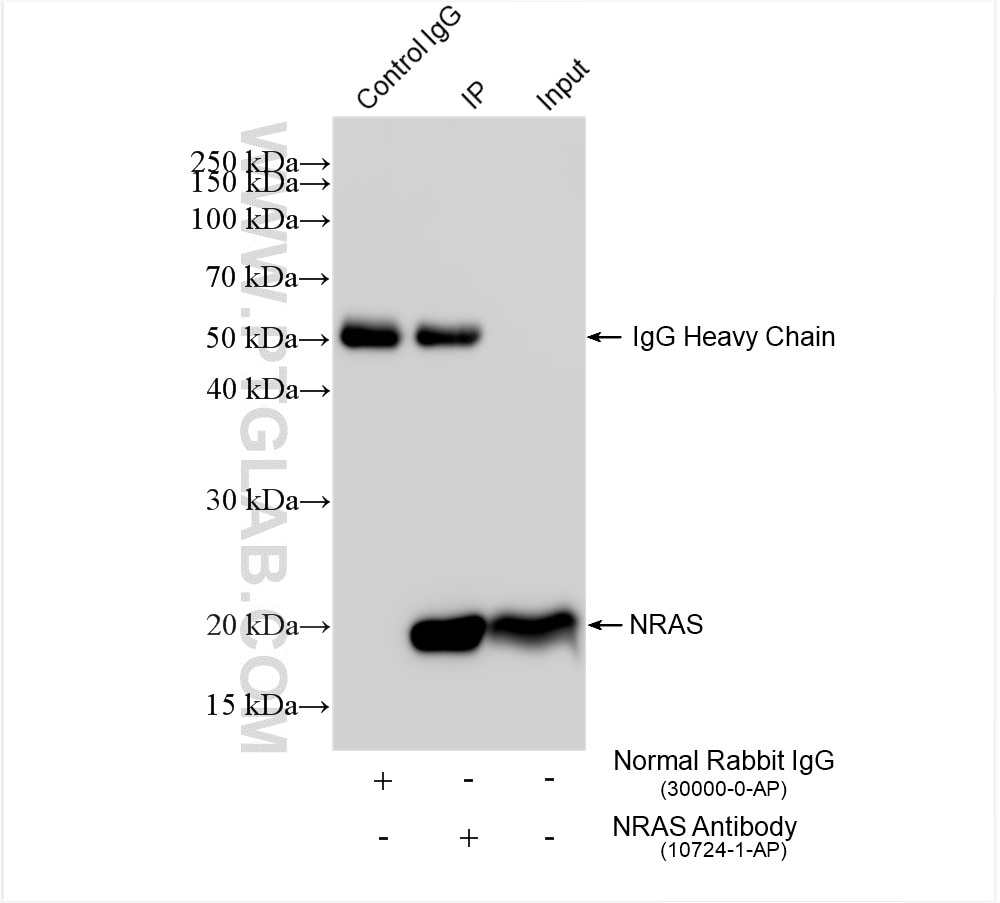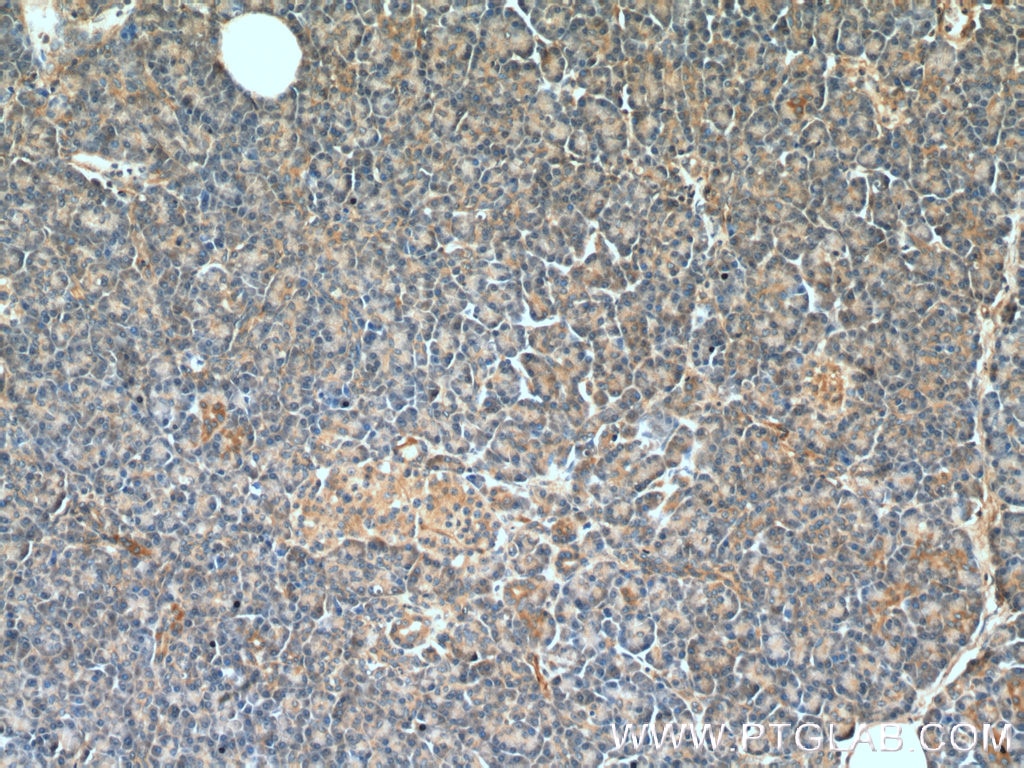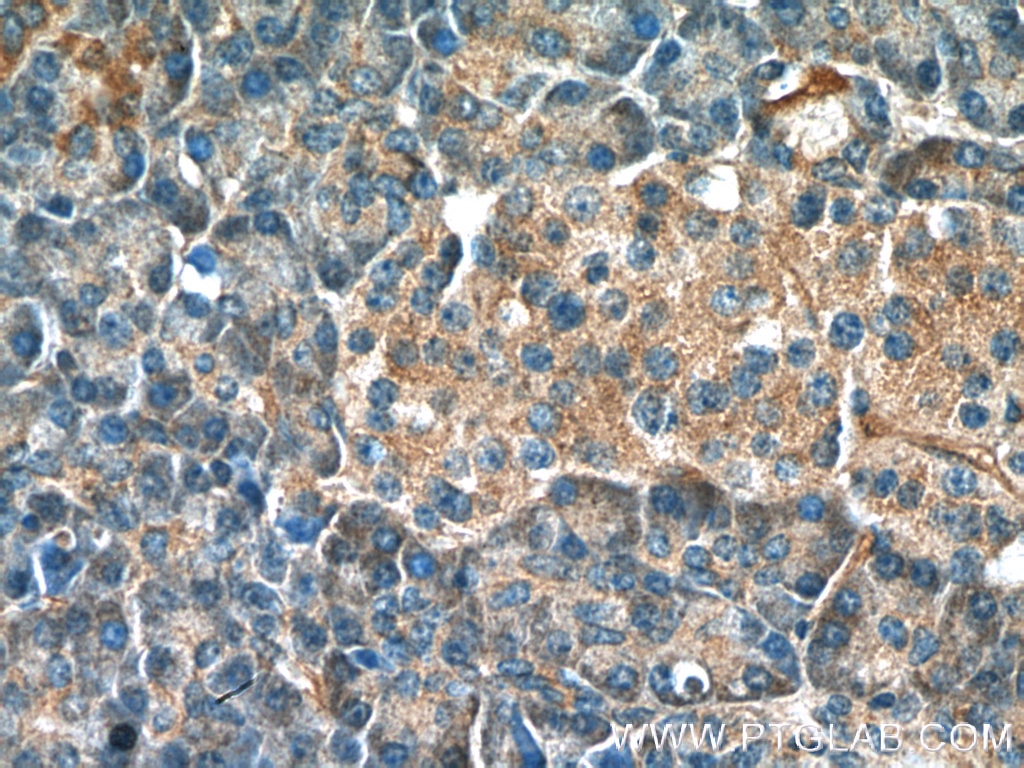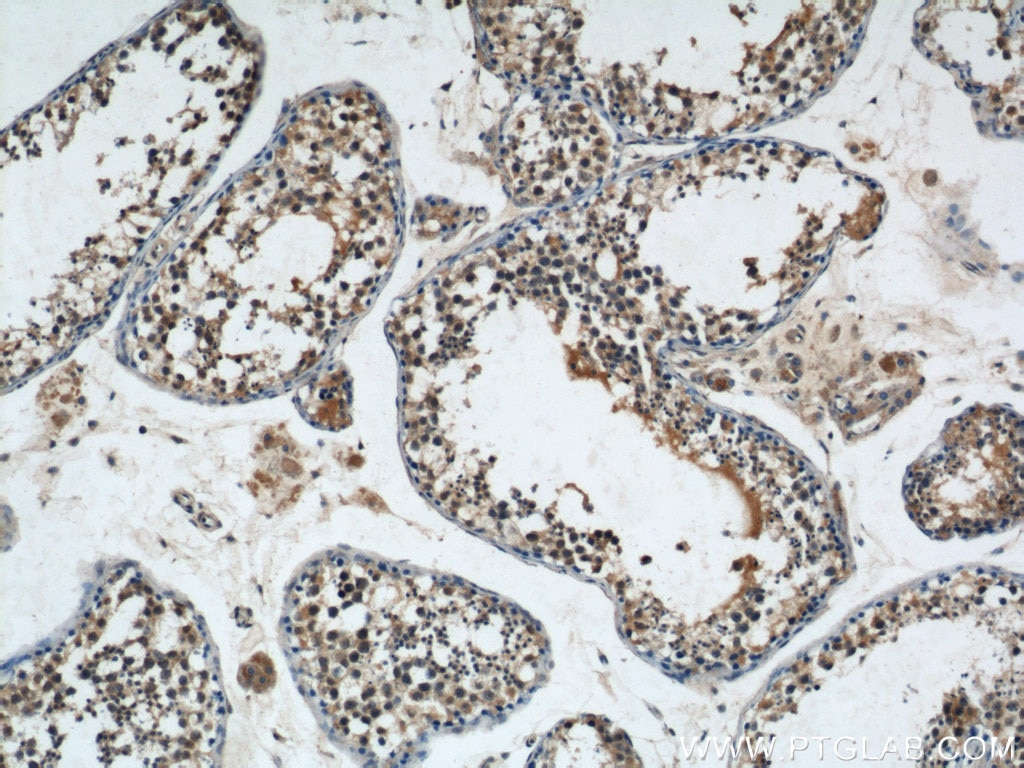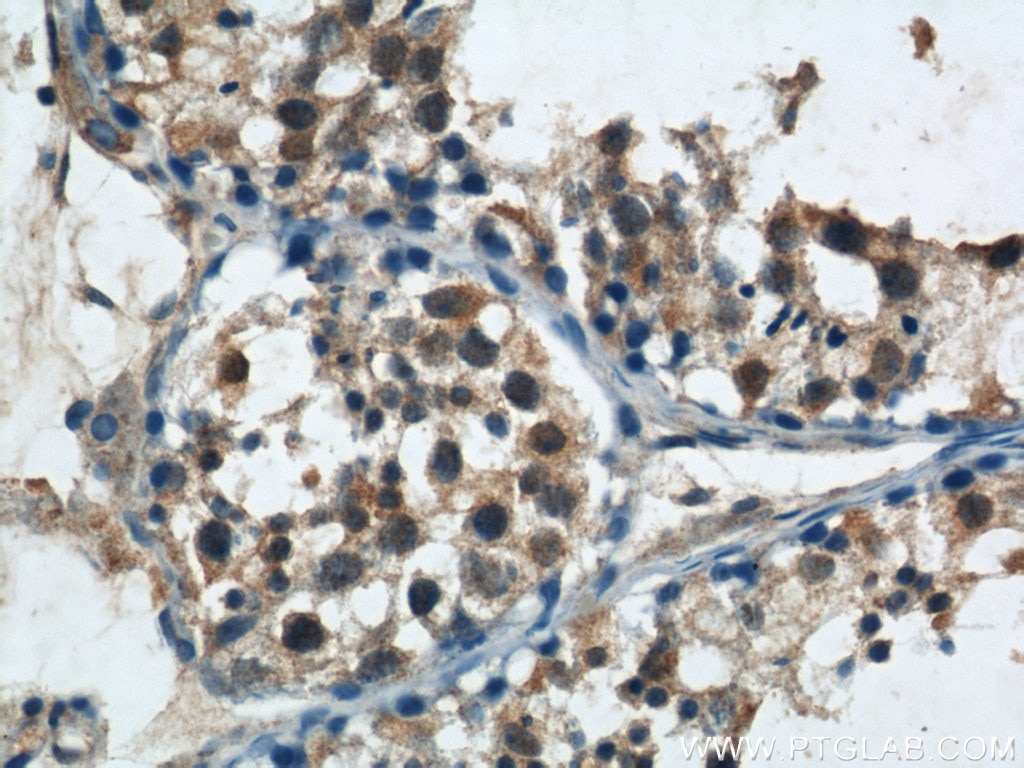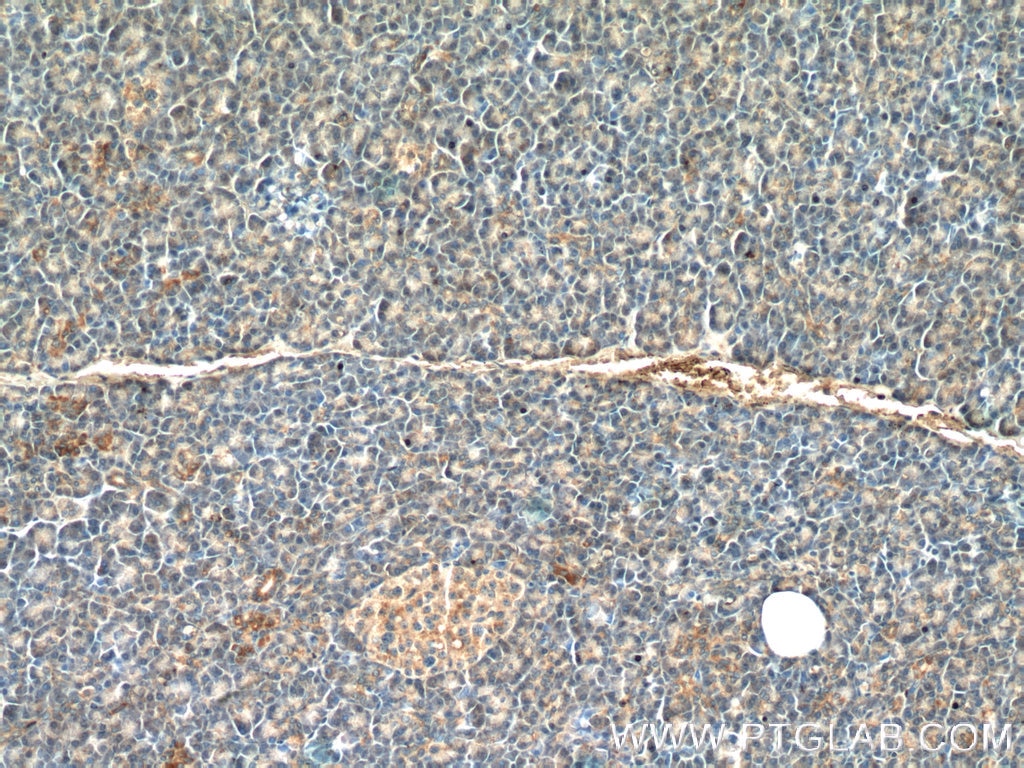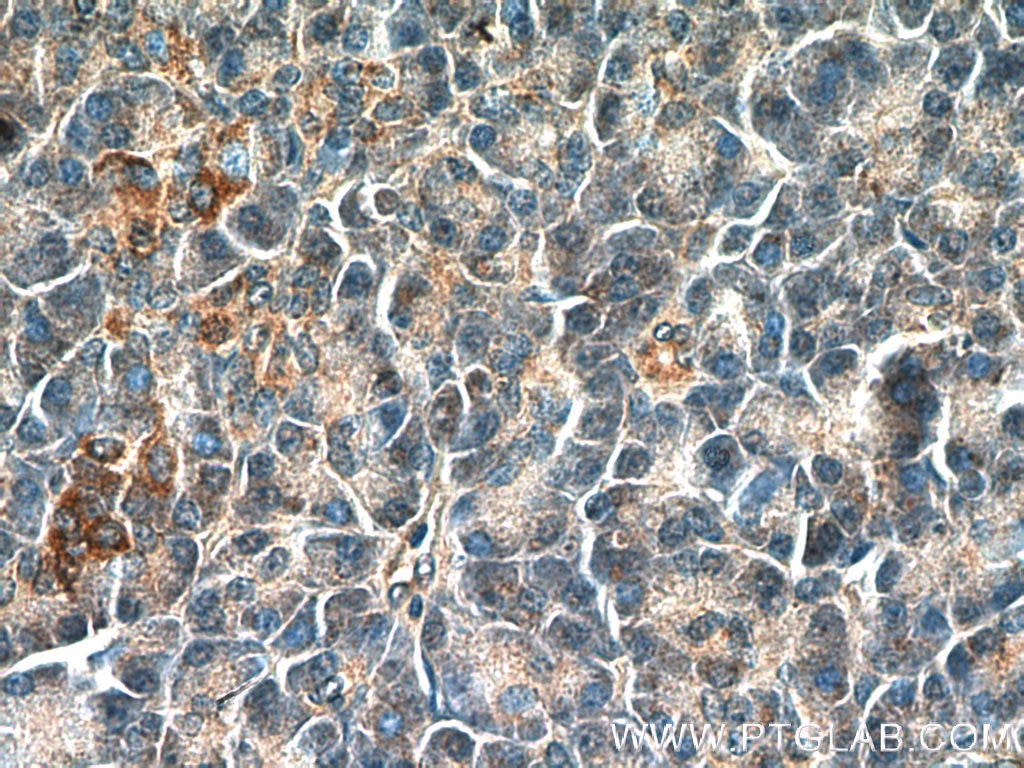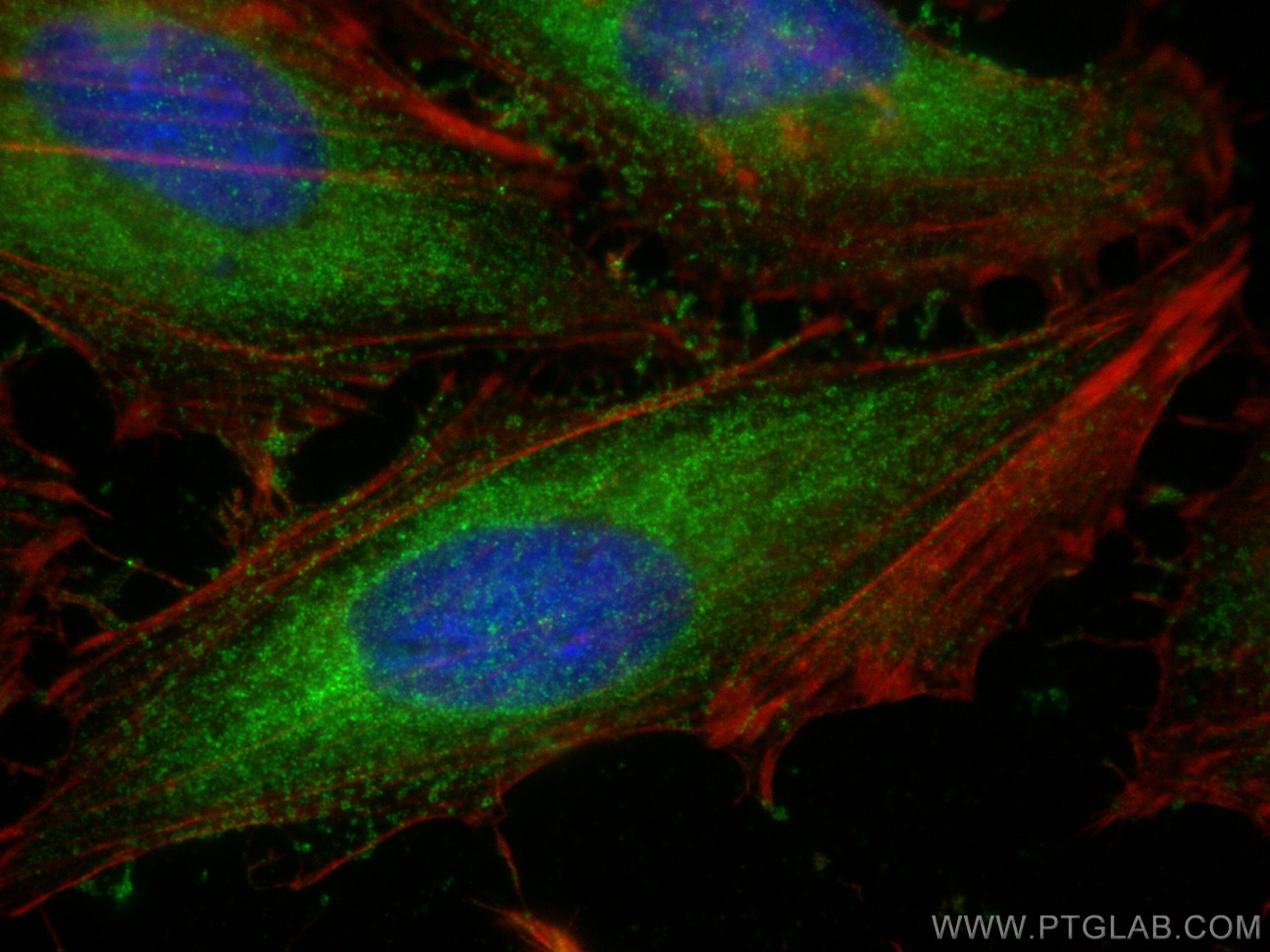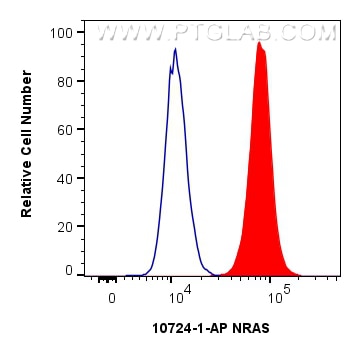Validation Data Gallery
Tested Applications
| Positive WB detected in | A431 cells, C6 cells, NIH/3T3 cells, Jurkat cells, A549 cells, HEK-293 cells, MCF-7 cells |
| Positive IP detected in | HEK-293 cells |
| Positive IHC detected in | human pancreas tissue, human testis tissue Note: suggested antigen retrieval with TE buffer pH 9.0; (*) Alternatively, antigen retrieval may be performed with citrate buffer pH 6.0 |
| Positive IF/ICC detected in | HeLa cells |
| Positive FC (Intra) detected in | HepG2 cells |
Recommended dilution
| Application | Dilution |
|---|---|
| Western Blot (WB) | WB : 1:500-1:2000 |
| Immunoprecipitation (IP) | IP : 0.5-4.0 ug for 1.0-3.0 mg of total protein lysate |
| Immunohistochemistry (IHC) | IHC : 1:50-1:500 |
| Immunofluorescence (IF)/ICC | IF/ICC : 1:200-1:800 |
| Flow Cytometry (FC) (INTRA) | FC (INTRA) : 0.25 ug per 10^6 cells in a 100 µl suspension |
| It is recommended that this reagent should be titrated in each testing system to obtain optimal results. | |
| Sample-dependent, Check data in validation data gallery. | |
Published Applications
| KD/KO | See 3 publications below |
| WB | See 29 publications below |
| IHC | See 5 publications below |
| IF | See 4 publications below |
| IP | See 1 publications below |
Product Information
10724-1-AP targets NRAS in WB, IHC, IF/ICC, FC (Intra), IP, ELISA applications and shows reactivity with human, mouse, rat samples.
| Tested Reactivity | human, mouse, rat |
| Cited Reactivity | human, mouse |
| Host / Isotype | Rabbit / IgG |
| Class | Polyclonal |
| Type | Antibody |
| Immunogen |
CatNo: Ag1081 Product name: Recombinant human NRAS protein Source: e coli.-derived, PGEX-4T Tag: GST Domain: 1-189 aa of BC005219 Sequence: MTEYKLVVVGAGGVGKSALTIQLIQNHFVDEYDPTIEDSYRKQVVIDGETCLLDILDTAGQEEYSAMRDQYMRTGEGFLCVFAINNSKSFADINLYREQIKRVKDSDDVPMVLVGNKCDLPTRTVDTKQAHELAKSYGIPFIETSAKTRQGVEDAFYTLVREIRQYRMKKLNSSDDGTQGCMGLPCVVM 相同性解析による交差性が予測される生物種 |
| Full Name | neuroblastoma RAS viral (v-ras) oncogene homolog |
| Calculated molecular weight | 21 kDa |
| Observed molecular weight | 21 kDa |
| GenBank accession number | BC005219 |
| Gene Symbol | NRAS |
| Gene ID (NCBI) | 4893 |
| RRID | AB_2154209 |
| Conjugate | Unconjugated |
| Form | |
| Form | Liquid |
| Purification Method | Antigen affinity purification |
| UNIPROT ID | P01111 |
| Storage Buffer | PBS with 0.02% sodium azide and 50% glycerol{{ptg:BufferTemp}}7.3 |
| Storage Conditions | Store at -20°C. Stable for one year after shipment. Aliquoting is unnecessary for -20oC storage. |
Background Information
NRAS, also named as N-ras and NRAS1, is neuroblastoma RAS viral (v-ras) oncogene homolog from the mammalian ras gene family and it is a member of the small GTPase superfamily. RAS proteins are involved in signal transduction pathways, and bind GDP/GTP and possess intrinsic GTPase activity. It is mapped on chromosome 1, and it is activated in HL60, a promyelocytic leukemia line. Defects in NRAS are a cause of juvenile myelomonocytic leukemia (JMML).
Protocols
| Product Specific Protocols | |
|---|---|
| FC protocol for NRAS antibody 10724-1-AP | Download protocol |
| IF protocol for NRAS antibody 10724-1-AP | Download protocol |
| IHC protocol for NRAS antibody 10724-1-AP | Download protocol |
| IP protocol for NRAS antibody 10724-1-AP | Download protocol |
| WB protocol for NRAS antibody 10724-1-AP | Download protocol |
| Standard Protocols | |
|---|---|
| Click here to view our Standard Protocols |
Publications
| Species | Application | Title |
|---|---|---|
Nat Cell Biol ADAR1 downregulation by autophagy drives senescence independently of RNA editing by enhancing p16INK4a levels. | ||
Gut RNA helicase DDX5 enables STAT1 mRNA translation and interferon signalling in hepatitis B virus replicating hepatocytes. | ||
Nat Commun Targeting NRAS via miR-1304-5p or farnesyltransferase inhibition confers sensitivity to ALK inhibitors in ALK-mutant neuroblastoma | ||
Biomaterials Polymeric nanoparticle mediated inhibition of miR-21 with enhanced miR-124 expression for combinatorial glioblastoma therapy. | ||
Clin Cancer Res Combinations with Allosteric SHP2 Inhibitor TNO155 to Block Receptor Tyrosine Kinase Signaling.
|

